Key takeaways:
- Tabletop role-playing games (TTRPGs) promote creativity, collaboration, and storytelling, bringing players closer together through shared narratives.
- TTRPGs enhance social skills and critical thinking, allowing players to communicate effectively and solve complex problems in a collaborative environment.
- The flexibility of TTRPGs enables players to explore diverse worlds and aspects of themselves, fostering personal growth and inspiration.
- Incorporating cryptocurrency into TTRPGs can transform gameplay dynamics, introducing real-world financial concepts and community collaboration among players.
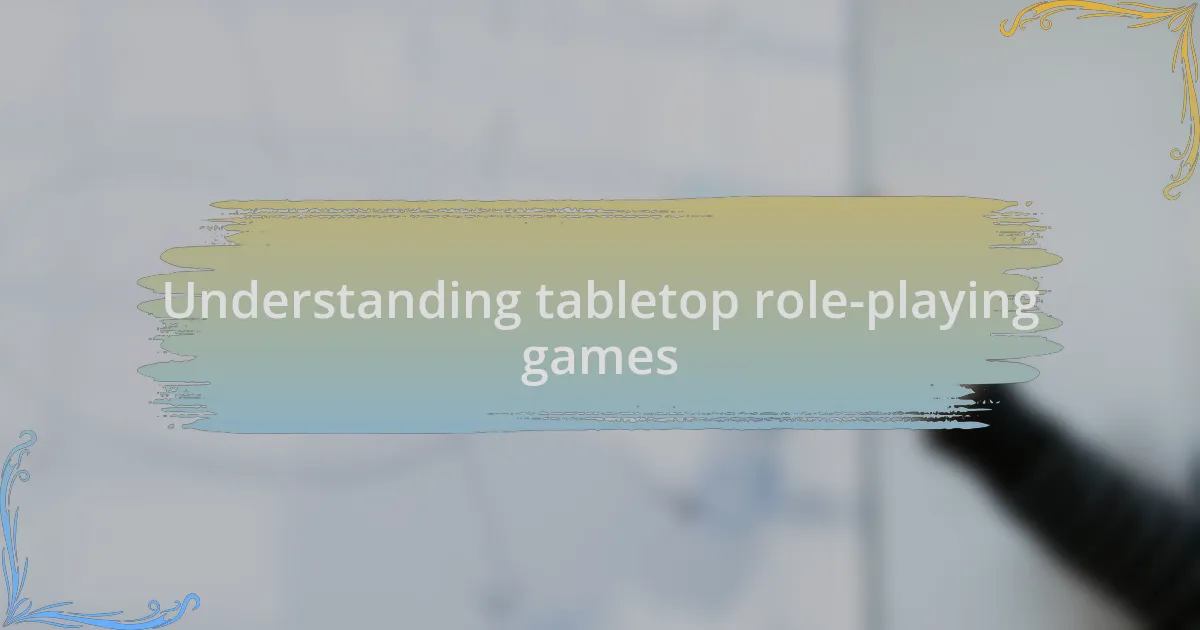
Understanding tabletop role-playing games
Tabletop role-playing games (TTRPGs) are unique experiences where players take on the roles of characters in imaginary worlds, guided by a game master. I remember the first time I sat around a table with friends, dice clattering as we spun tales together, each person contributing to a larger narrative. It’s fascinating how these games encourage creativity and collaboration; have you ever considered how storytelling can bring friends closer together?
As you dive deeper into the mechanics of TTRPGs, it becomes clear that they blend chance and strategy. Think about it: every roll of the dice can determine your character’s fate, while decisions you make can shift the entire course of the story. I recall a moment when a simple choice to save a character led to an unexpected plot twist that had us all on the edge of our seats. Isn’t it incredible how a game can evoke such strong emotions and memorable moments?
What truly sets TTRPGs apart from other games is the limitless potential for adventure. Players can create any character they envision, from a cunning rogue to a noble wizard, and explore diverse worlds. I once played a campaign that took us through realms inspired by mythology, and it sparked a passion for storytelling that has lasted years. Do you think there’s a reason why these games resonate so deeply with our imagination?
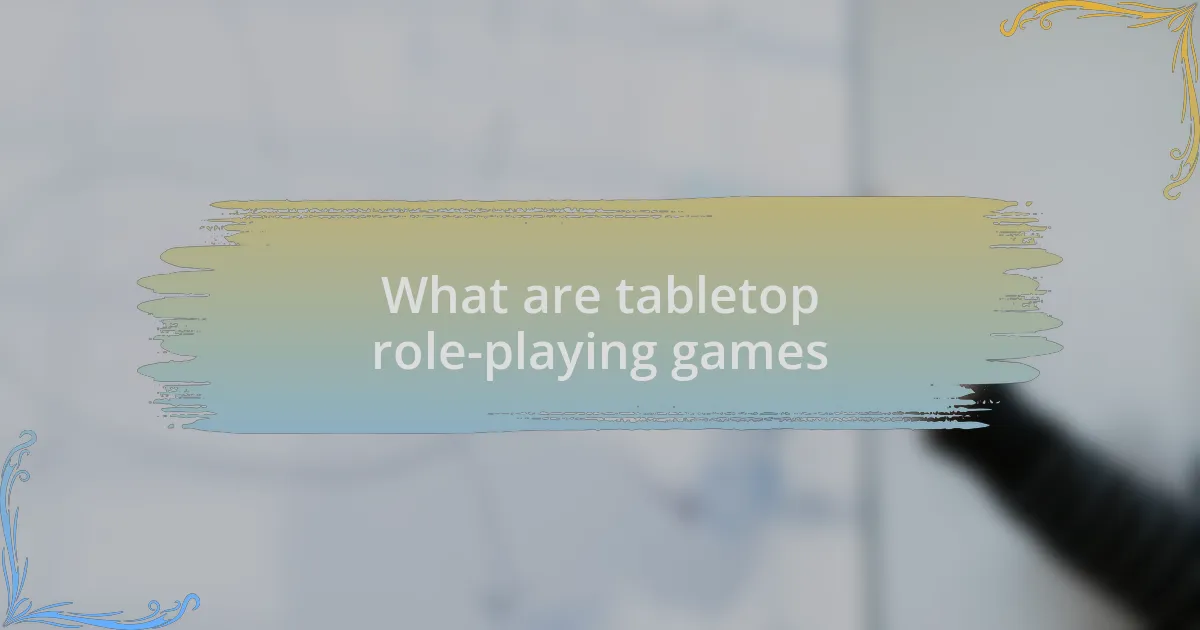
What are tabletop role-playing games
Tabletop role-playing games, often abbreviated as TTRPGs, are immersive experiences where players embody characters in diverse fictional settings. I remember once stepping into the shoes of a daring explorer; the thrill of navigating uncharted territories while collaborating with my friends fueled an unforgettable session. Have you ever experienced the excitement of stepping into another world, leaving reality behind for just a few hours?
These games are unique because they hinge on storytelling and imagination, allowing players to weave intricate narratives together. I was part of a campaign where my character faced moral dilemmas, directly impacting our party’s journey. It felt like I wasn’t just playing a game, but living a story. Isn’t it fascinating how a simple act of rolling dice can turn into a catalyst for deep reflection on our values and choices?
What’s truly captivating about TTRPGs is their flexibility; there are virtually no limits to where the adventures can lead. I once helped design a campaign that blended science fiction and fantasy, which opened up a world of creativity and innovation. This dynamic allows players to explore not just new locations, but different facets of themselves through their characters. Have you considered how these experiences might inspire your own creativity or problem-solving skills?
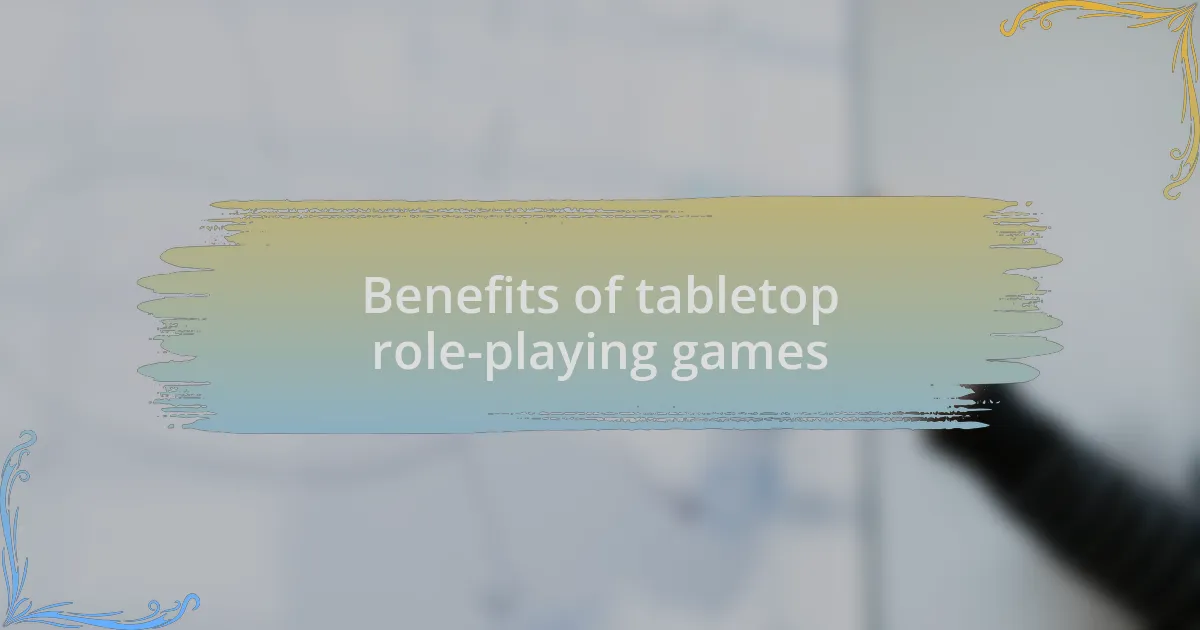
Benefits of tabletop role-playing games
One of the most significant benefits I’ve found in tabletop role-playing games is their ability to enhance social skills. During my first campaign, I remember feeling a little shy about sharing my ideas, but as we strategized together, I discovered how important communication and collaboration were. Have you noticed how discussing character decisions pushes us to articulate our thoughts clearly? This aspect can spill over into everyday life, making us more confident in group settings.
Another advantage is the development of critical thinking and problem-solving abilities. I recall a session where my party faced a seemingly insurmountable challenge; we needed a clever solution to escape a trap. As we brainstormed, I realized I was not just thinking outside the box—I was learning to assess risks and evaluate the consequences of our choices. Isn’t it incredible how a fantasy scenario can sharpen our minds for real-world tasks?
Lastly, the emotional connection formed through these games can foster empathy and understanding. I played a character who had a difficult past, and experiencing their struggles opened my eyes to different perspectives. How often do we get the chance to step into someone else’s shoes so deeply? These moments can cultivate compassion, enriching our interactions both in and out of the game.
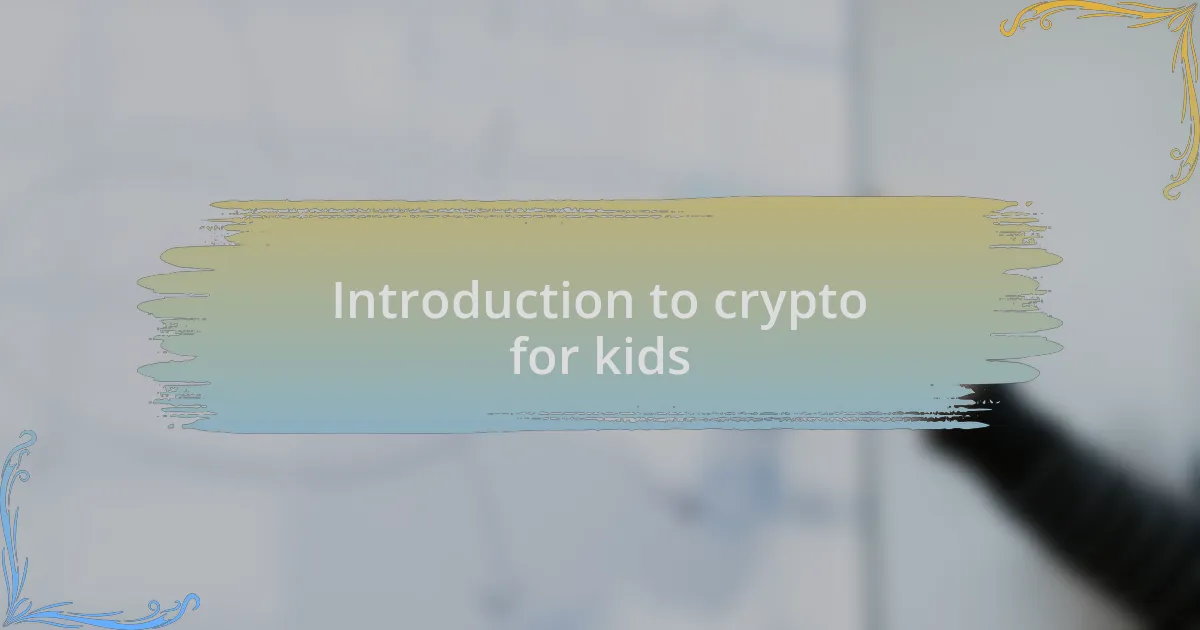
Introduction to crypto for kids
Understanding cryptocurrency can seem overwhelming, especially for kids, but I believe breaking it down helps. Just like in a tabletop role-playing game where players gather resources and strategize, kids can learn about virtual assets and digital transactions. Have you ever noticed how kids adapt to new technology quickly? This adaptability serves them well when navigating the basics of crypto.
I remember introducing my younger sibling to the concept by comparing it to a game currency. We discussed how in their favorite video games, they earn coins to level up, much like how people can earn or trade cryptocurrency. Witnessing their eyes light up as they connected the dots was a true joy. Isn’t it fascinating how relatable examples can make complex topics graspable for younger minds?
Moreover, discussing crypto sparks curiosity and encourages financial literacy from an early age. When I started exploring money management in games, I learned to value my resources. I think that same principle applies when kids learn about digital currencies. Why not equip them with the tools to succeed financially in our ever-evolving digital world?
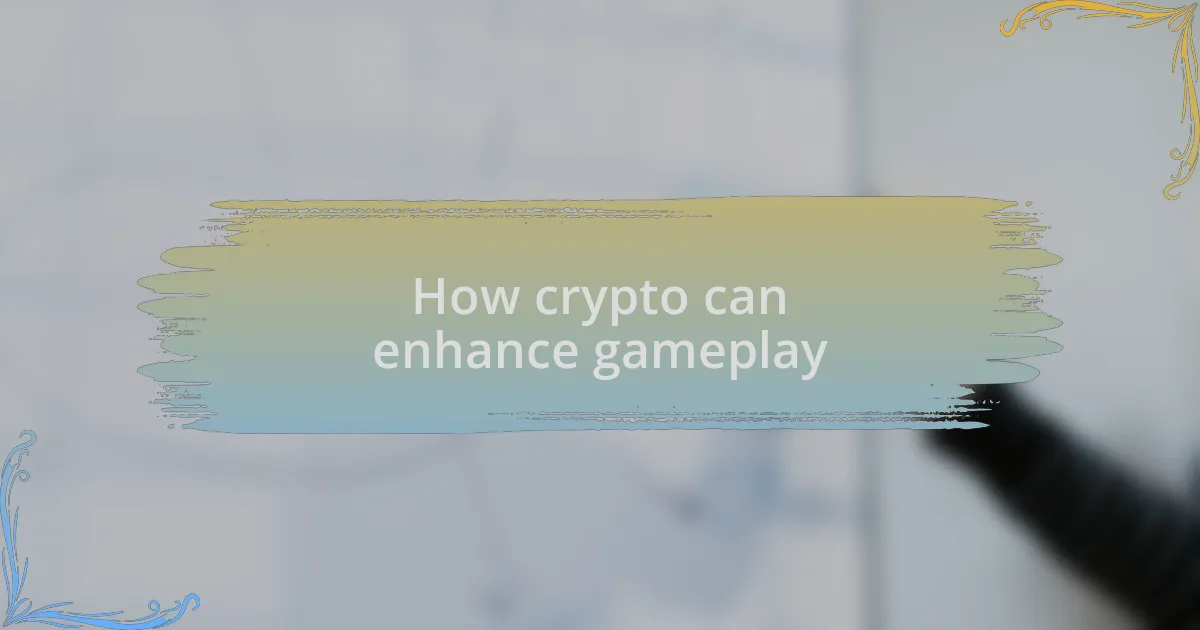
How crypto can enhance gameplay
When I first introduced crypto into our tabletop sessions, I noticed it transformed the game dynamics. Players could earn tokens for completing quests, making every decision matter in a tangible way. Isn’t it exciting to see how stakes can create new levels of engagement and strategy among friends?
One memorable night, we implemented a crypto system where players could trade in-game items for crypto tokens. I still remember the thrill when someone decided to invest their tokens into a rare magical artifact rather than hoarding them. That split-second choice sparked debates about value and risk, much like real-world investments. Could this spark curiosity in kids about how their choices can have real-world implications?
Additionally, using crypto in gameplay reminds us of the power of community. Collaborating to buy virtual assets fosters teamwork while teaching concepts like supply and demand. As I reflect on those experiences, I wonder—could incorporating crypto into games not only create fun memories but also build skills that last a lifetime?